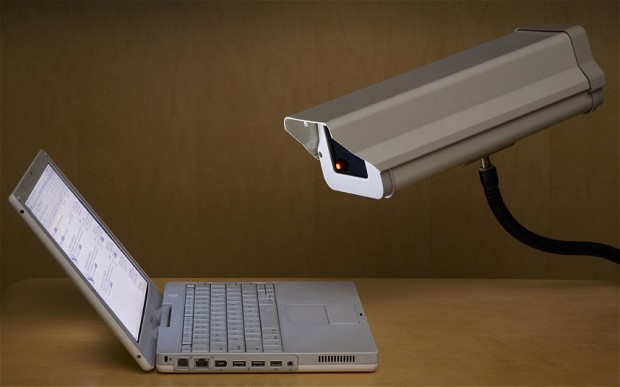House passes bill requiring companies to inform consumers if their smart devices have cameras or microphones
03/01/2023 / By Arsenio Toledo

The House of Representatives voted on Monday, Feb. 27, to make manufacturers inform consumers if their internet-connected devices come with cameras or microphones.
The bill, known as H.R. 538 or the Informing Consumers About Smart Devices Act, would require manufacturers to disclose whether their products contain a camera or microphone. Its primary sponsor is Republican Rep. John Curtis of Utah.
According to Curtis, the bill aims to protect the privacy of consumers by requiring the Federal Trade Commission (FTC) to craft “reasonable disclosure guidelines” for companies with unusual products that have audio or visual recording components.
These products include refrigerators, washers, dryers, dishwashers and any other products that have cameras or microphones “that are not clearly obvious.” This requirement does not cover certain devices “that a consumer would reasonably expect to have a microphone or camera,” including telephones, smartphones, laptops and tablets. (Related: Atlas of Surveillance database reveals THOUSANDS of law enforcement agencies unlawfully surveilling Americans.)
On Monday, a motion to suspend House rules to pass H.R. 538 flew through the chamber with strong bipartisan support – 201 Democrats and 205 Republicans voted for the bill. Twelve Republicans voted against it and 15 representatives did not vote.
“This is a relatively straightforward bill,” said Republican Rep. Gus Bilirakis of Florida. “Internet-connected devices are becoming increasingly present in our lives, and it’s important for people to understand what they’re buying.
“This common sense and bipartisan bill ensures consumers are aware of the recording capabilities of items they are putting in their homes, while also balancing flexibility for companies who are developing smart technologies,” said Curtis. “I am grateful to my colleagues for helping pass this important legislation and look forward to its eventual passage in the Senate.”
The Informing Consumers about Smart Devices Act already has companion legislation in the Senate introduced by Republican Sen. Ted Cruz of Texas and Democratic Sen. Maria Cantwell of Washington.
Prevalence of smart devices in homes presents more opportunities for Americans to be spied upon
The legislation specifically addresses concerns by many consumers that they may not be aware of the growing number of household devices and appliances that include cameras or microphones capable of recording and transmitting data without their knowledge.
In a statement in the House, Democratic Rep. Frank Pallone of New Jersey, another supporter of the measure, noted that the average American home may have 11 devices connected to the internet and capable of gathering and transmitting personal data. But a recent survey by Deloitte suggests that the number of internet-connected devices in the average American home is even higher – around 22 smart devices per home as of last year.
Pallone added that the House has a responsibility to make sure that, as more and more home appliances become connected to the internet, this expansion “does not come at the expense of consumers’ privacy.”
Researcher and expert on Chinese markets Christopher Balding warned that the danger of secret recording devices in smart devices extends beyond the threat posed by corporations and petty scammers.
In a 2022 report, Balding suggests that the prevalence of smart devices in American homes could be used by China to unknowingly record Americans, which represents a significant national security issue for the country. Specifically, Balding warned about Americans using smart coffee makers manufactured in China.
“While we cannot say this company is collecting data on non-Chinese users, all evidence indicates their machines can and do collect data on users outside of mainland China and store the data in China,” noted Balding’s report.
Learn more about threats to personal privacy at PrivacyWatch.news.
Watch this video from InfoWars as host Alex Jones discusses how the globalists are boosting the world’s surveillance grid.
This video is from the InfoWars channel on Brighteon.com.
More related stories:
NYPD to use “Robocop-style” patrol cars with 360-degree cameras.
Don’t trust the government with your privacy, property or your freedoms.
Sources include:
Submit a correction >>
Tagged Under:
big government, computing, cyber war, future tech, Glitch, H.R. 538, hidden cameras, hidden microphones, information technology, national security, privacy watch, products, smart devices, surveillance, surveillance technology, watched
This article may contain statements that reflect the opinion of the author
RECENT NEWS & ARTICLES
COPYRIGHT © 2017 COMPUTING NEWS




















